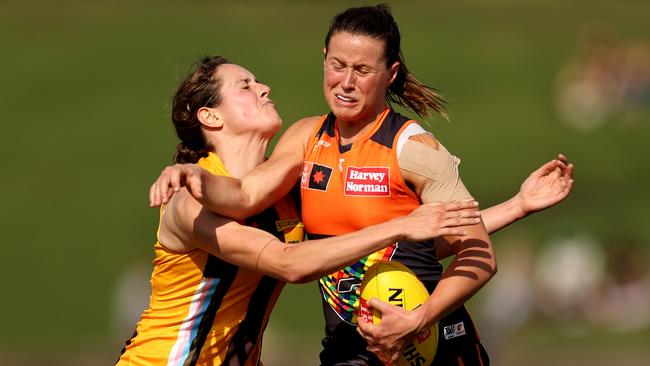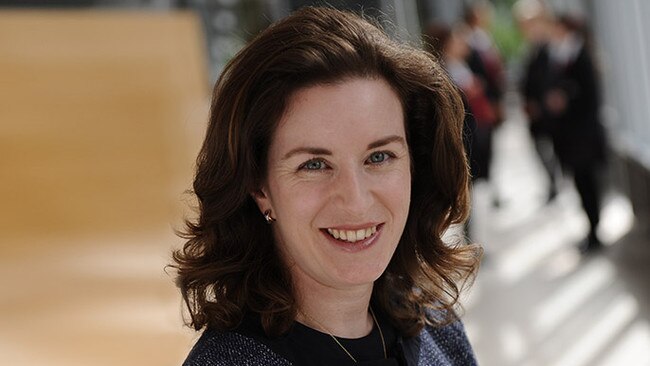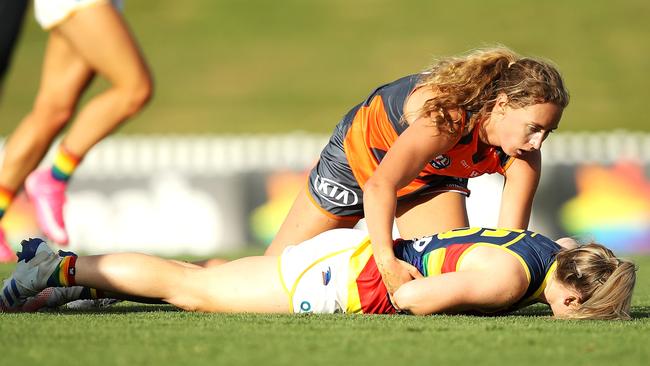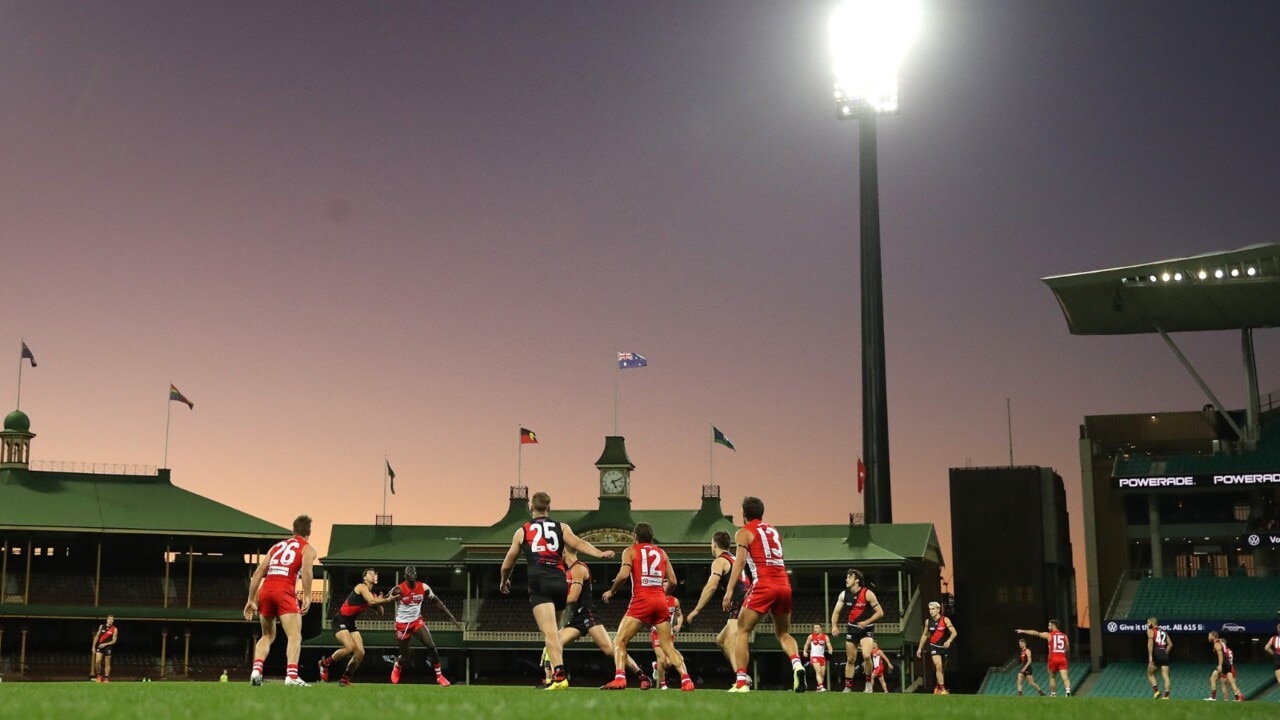Queenwood girls’ school bans AFL over risk of brain trauma
Prestigious Sydney girls school Queenwood has banned Australian rules football because of traumatic brain injury concerns.

Prestigious Sydney girls school Queenwood has banned Australian rules football because of traumatic brain injury concerns.
Queenwood, which has a proud AFL history with former student Nicola Barr a No.1 draft pick, did not take part in last season’s Independent Girls’ competition after the school hierarchy deemed the sport to be too great a risk to a female adolescent’s developing brain.
In a lengthy statement to The Australian, Queenwood principal Elizabeth Stone said there were three decisive factors that moved the school to phase out the sport from their program.
“At Queenwood, we loved everything about AFL except for the risk of trauma to the brain,” Ms Stone said. “We did an extensive review of the research, drawing on expert advice, and what we found concerned us.

“There were three decisive factors. The first was the mounting evidence that adolescents are at greater risk of brain injury than either children or adults. The second was the data showing that females experience concussion more frequently and more severely than males. This meant that our students, teenage girls, were in the highest risk category.
“The third factor, which is not widely understood, is that the damage accumulates over time from any impact to the head – including sub-concussive impacts. It’s like clocking up charges on a credit card with an unknown but catastrophic credit limit.
“While individuals vary in how many blows to the head they can sustain before crossing the threshold to detectable brain injury, we weren’t comfortable with the idea that our students would be pushing closer to that limit on our watch. They have a lifetime ahead of them.
“We phased out AFL with reluctance but real certainty on the basis of the evidence that it was in their best interests.”
The Independent Girls School competition was first contested in 2019 by six schools collectively fielding 32 teams and, in 2022, it grew to more than 72 teams from 12 schools with 1300 players pulling on the boots.
Among those in season 2022 were Loreto Normanhurst, MLC School, Monte Sant’ Angelo Mercy College, PLC Sydney, Pymble Ladies’ College, Ravenswood School for Girls, St Catherine’s School, St Scholastica’s College and Wenona School.
In the AFL senior women’s league, AFLW, last year concussion was the second most common injury suffered behind knee injuries. In season six of the AFLW season there was an incidence of 8.75 new injuries per 1000 player hours. In season seven, which also occurred in 2022, fewer incidences of concussion occurred at 6.31 new injuries per 1000 player hours.

Both AFL greats Danny Frawley and Shane Tuck, who took their own lives, were found to have been suffering from CTE (Chronic Traumatic Encephalopathy).
The AFL were contacted for comment regarding Queenwood’s decision and provided a statement in response.
“The health and safety of everyone playing Australian football is a key priority for the AFL and this has been a key factor in the growth of the game nationally,” the AFL statement read.
“Australian football in girls’ schools in Sydney is thriving, having grown from six schools and 32 teams in 2018, to 12 schools and just over 100 girls teams now competing in various competitions.
“As part of support provided, the AFL delivers concussion management guidelines developed by medical professionals for all clubs and teams and we continue to take the necessary steps to improve player safety at all levels of the game.”

Former GWS Giants footballer Jacinda Barclay, who also played contact football in the states, also took her own life. Barclay’s brain was donated to the Australian Sports Brain Bank where they uncovered neurological damage that they described as a “ticking time bomb”.
“The vessels in the white matter had changes that you often see in elderly people, but not in someone of Jacinda’s age who is in peak physical health,” said neuropathologist Dr Michael Buckland, the executive director of the Australian Sports Brain Bank who examined Barclay’s brain at the time. “An elite athlete shouldn’t have those changes.”
Leading neurologists and experts in concussion have been pushing for young people to not tackle until the age of at least 12 – to instead play touch or non-contact versions of games like rugby union and rugby league.
Last week a senate inquiry into concussion took place discussing the issue of CTE and concussion protocols in Australian sport. The inquiry came after The Australian’s podcast investigation Head Noise, co-hosted by NRL great James Graham, who revealed the brain damage he suffered because of the game.








To join the conversation, please log in. Don't have an account? Register
Join the conversation, you are commenting as Logout